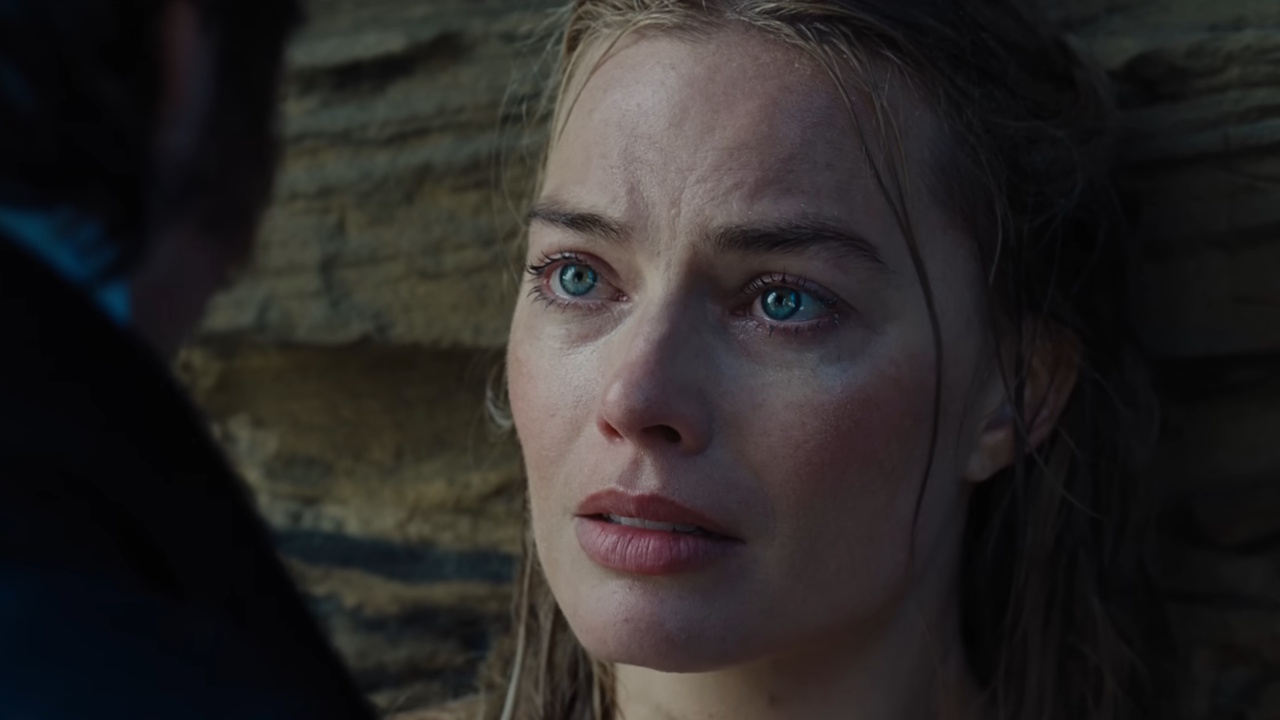The Unforgivable Ending Explained: The Big Twist And More
Did The Unforgivable ending leave you breathless?
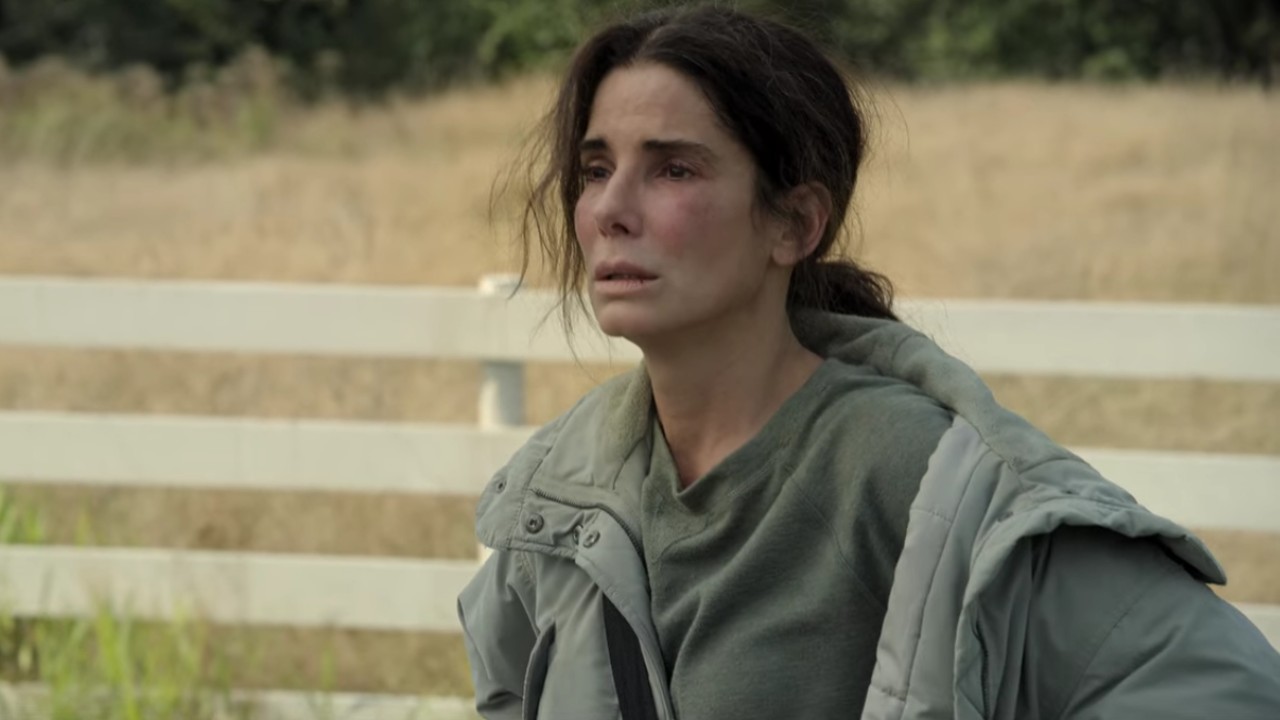
Your Daily Blend of Entertainment News
You are now subscribed
Your newsletter sign-up was successful
The Unforgivable is the latest Netflix and Sandra Bullock collaboration. The film follows Ruth Slater (Bullock) as she readjusts to society and tries to see her sister after 20 years of incarceration. Based on the BBC miniseries Unforgiven, the film challenges perceptions of right and wrong, good and bad, and familial sacrifice. This film had many powerful elements, from the performances to the score, but one of the most thought-provoking elements was The Unforgivable ending.
The Unforgivable is one of the most anticipated fall 2021 Netflix movies, mainly because of the star power of Sandra Bullock, Viola Davis, Vincent D'Onofrio, Jon Bernthal, and more, but also because so many aspects were destined to start a conversation, especially the ending. Let’s discuss it.
Warning: Spoilers for Netflix’s The Unforgivable ahead. Proceed with caution!
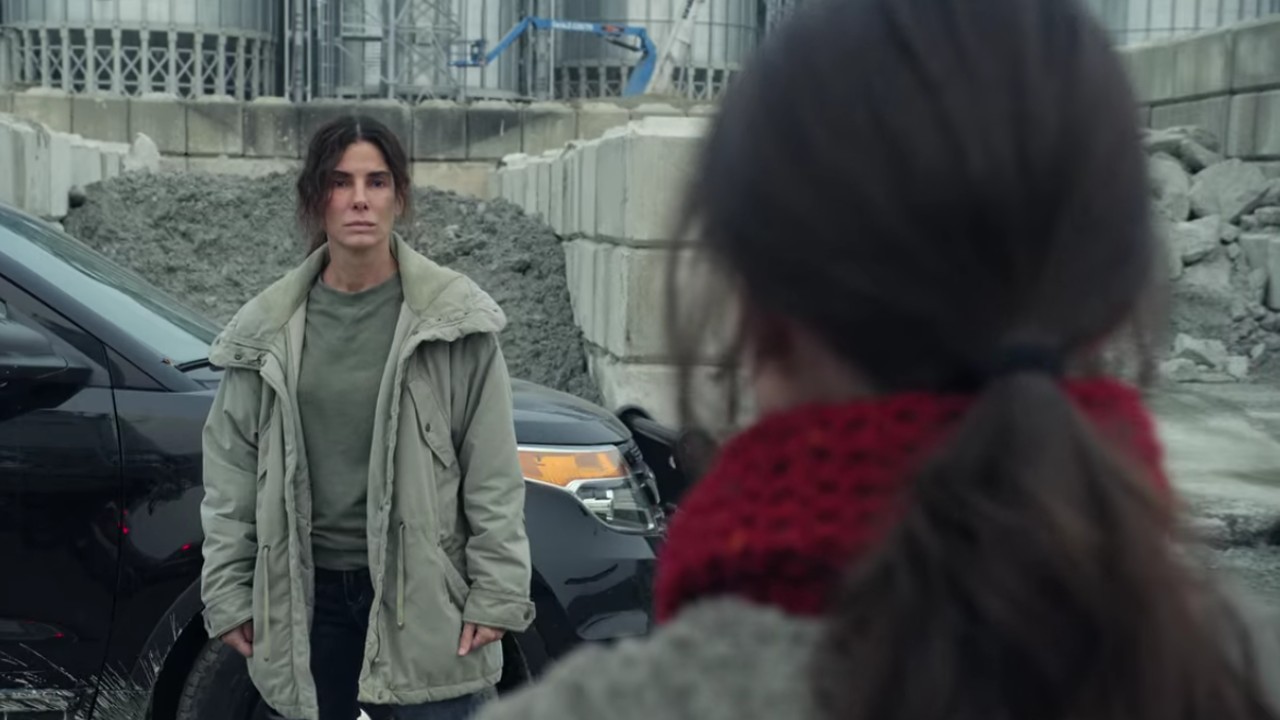
What Happened At The End Of The Unforgivable?
Ruth searches for John (Vincent D’Onofrio) at his home to find out if she’s legally allowed to attend Katie's (Aisling Franciosi) piano performance. Instead, Liz (Viola Davis) is there and tells Ruth to leave her home immediately. The women have a confrontation, with Liz shouting at Ruth to not play the victim, and Ruth accidentally reveals that she never shot the police officer. Katie did it and Ruth took the blame.
Liz then offers to attend the performance with her, but once they get there, Ruth receives a call from Steve (Will Pullen), informing her that he has Katie, and he plans to harm her. He wants Ruth to meet him at another location, so she has Liz drive her there. Ruth goes inside, while Liz stays outside and calls the police. Ruth sees that Steve kidnapped Emily (Emma Nelson), mistaking her for Katie.
Ruth then appeals to Steve and tells him that his father mentioned him before his death and that he was a good man. Ruth apologizes for what happened. Steve breaks and cannot do it, then he falls to the ground. This allows Emily and Ruth to escape. The police arrive and arrest Steve. Katie and her parents arrive to see about Emily. Katie sees Ruth standing nearby and slowly walks over to her. They then share a long hug.

The Big Unforgivable Ending Twist
The entire film led viewers to believe that Ruth killed Mac Whelan (W. Earl Brown). However, we didn’t quite understand why, and then it all started to make sense during The Unforgivable ending. Katie killed him after hearing Ruth yelling at him over the phone. Katie did it to protect her sister, and Ruth confessed to the crime to protect her sister.
Your Daily Blend of Entertainment News
In one of the first scenes with the Ingram family, Liz asks her boys who did something with a ramp. Ryan (Orlando Lucas) confesses to it, but Liz knows that both have to be involved for it to work. She punishes both of them. This is a constant theme throughout The Unforgivable.
Siblings take on the pain or blame for the other, and they are both punished. We see this with Ruth and Katie, as Ruth ends up in prison, but Katie also suffers because she is missing a huge part of her life with her sister no longer in it.
We also see this with Katie and Emily. Emily reads Ruth’s letters for Katie and takes on part of the burden of knowing Ruth’s story, and then gets punished by being mistaken for Katie and kidnapped. It happens again with Steve and Keith (Tom Guiry). Keith is originally the one who wants revenge the most, and he is the most distraught about their father’s death. However, Steve takes on his pain, which results in Steve ruining his life, and this hurts Keith because now he will lose his brother in addition to his father.
If you notice this pattern and the very clever foreshadowing with the first scene of the Ingram family, then the big twist makes complete sense. The Unforgivable ending twist also completely changes viewers’ perspective of Ruth. She goes from a woman who did something bad or made a mistake, to a woman who made a sacrifice to save her sister, who was more like her child. Instead of a criminal, she becomes a mother giving up her life so that her child could live.
I think it’s also interesting to note that many may wonder why Ruth didn’t tell the truth, Katie was a child and may not have been punished as harshly as an adult for the crime. I am not a legal expert, but I believe even if Katie wasn’t charged with the crime, she would take on the burden of knowing she killed a man. Katie would become the cop killer and would never be allowed to live a normal life, so I think Ruth viewed her lie about Mac's death as the only way to give Katie a normal life.

Ruth’s Second Chance in The Unforgivable
The Unforgivable has a constant pattern of Ruth starting to live a normal life, only to have something come and crash it. Ruth’s entire post-prison journey feels very true to life, because so many incarcerated individuals end up back in prison because they find it difficult to readjust to society, either because there are systems in place that make it hard to overcome past behavior, or they are just doomed to repeat past mistakes.
In an interview with DC Film Girl, The Unforgivable director Nora Fingscheidt discussed visiting prisons as part of the research process for the film. Her team met with women inside and already out of prison to have different perspectives that would help the development of the Ruth character. That research comes across clearly, because Ruth’s story feels so true and organic. Prisoners may rightfully or wrongfully not have an easy journey back into regular life.
In an interview with The Nerds of Color, Fingscheidt added that one of the things that she hopes viewers took from the film is this:
That they think about forgiveness and second chances and do take a closer look when they see somebody you know who does not have the benefit with birthright that they have.
I believe that Ruth gets a second chance when Katie recognizes her and hugs her. However, as Fingscheidt states, not everyone gets a second chance or forgiveness. I think one of the major lessons viewers can learn from The Unforgivable is that someone’s story may be more complicated than you know, and to be open to learning and forgiveness.
I don’t think the film is saying all crimes should be forgiven, because many crimes are unforgivable, especially for the victims, but I believe the film wants viewers to stop and analyze a situation or person before immediate judgment.
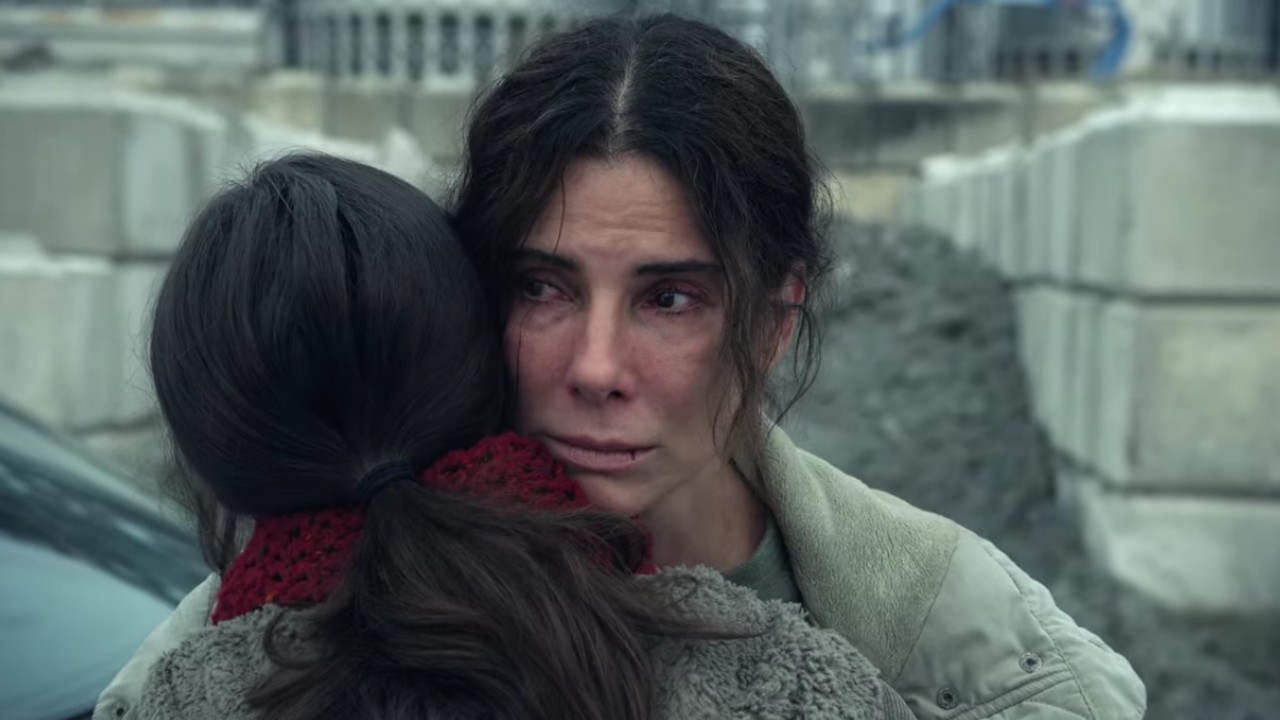
Did The Unforgivable Ending Satisfy?
The Unforgivable chose to end the film on a quiet, but hopeful note. Katie and Ruth didn’t speak, but their facial expressions said it all. Some may have wanted a bigger, more grand ending, but I believe it worked because it was so simple. Life is filled with more tiny, quiet moments than these big, grandiose ones. Most of us live and love quietly, and that’s reflected back in how Ruth and Katie embrace one another in the end.
Without them saying anything like, “I am happy to see you” or “I’ve missed you,” their hug says a lot. As filmgoers we might want big and bold, but sometimes the simplest movie moments have the best results.
The Unforgivable is a very interesting entry to the 2021 movies that will definitely spark some conversation. The performances by Sandra Bullock and Viola Davis alone make it a must-watch fall stream. The Unforgivable ending just adds an extra layer of must-see.
You can see what's ahead by checking out the 2022 movies and looking at the 2022 TV premiere dates, or see the best movies on Netflix right now.
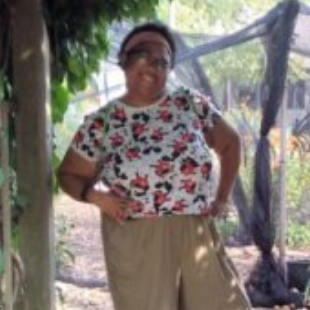
Spent most of my life in various parts of Illinois, including attending college in Evanston. I have been a life long lover of pop culture, especially television, turned that passion into writing about all things entertainment related. When I'm not writing about pop culture, I can be found channeling Gordon Ramsay by kicking people out the kitchen.
